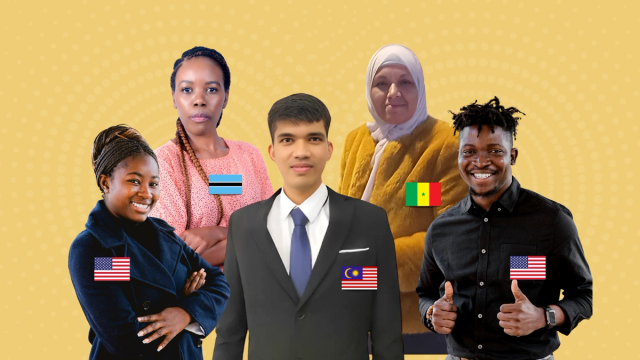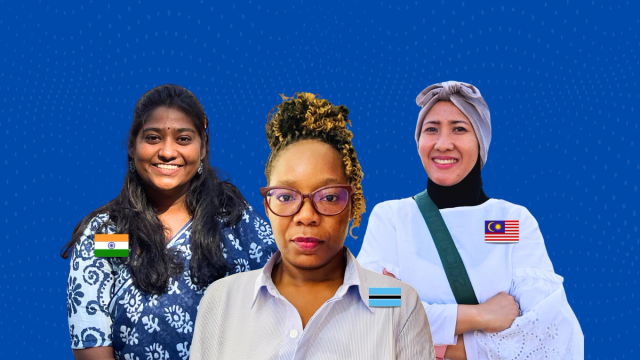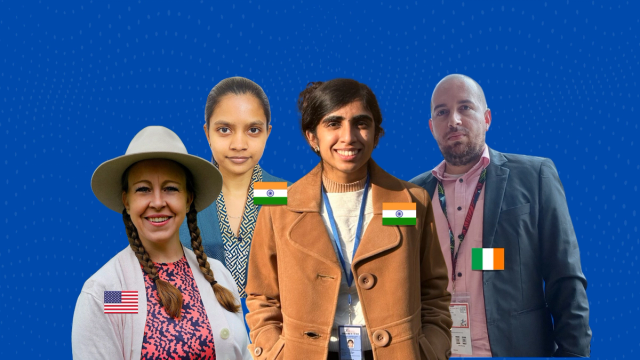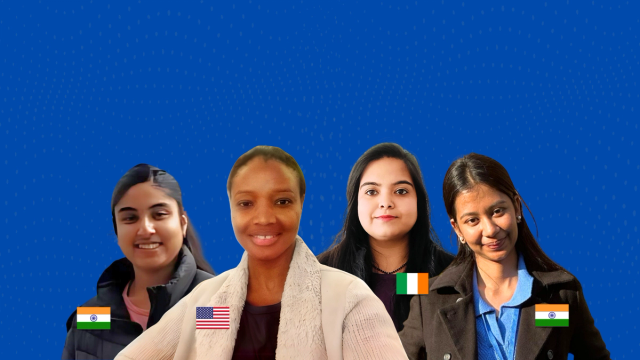Harnessing MDP Talent for Global Action: Highlights from the Global MDP Challenge 2024
The Global Master of Development Practice (MDP) Association, hosted by the UN Sustainable Development Solutions Network (SDSN) and the SDG Academy, launched its first-ever Global MDP Challenge — a groundbreaking initiative designed to mobilize the energy and expertise of MDP students worldwide to co-develop real-world solutions to pressing global challenges. Proposals were evaluated by a panel of development and academic experts from the World Bank, the Global Environment Facility, and leading universities.
Led by Max Genin (MDP ’26, Harvard University), North American Chair of the MDP Student Alumni and Advisory Council (SAAC), the Challenge brought together 60 participants from 15 MDP programs across 13 countries, working across borders, time zones, and disciplines to develop actionable, SMART proposals aligned with the Sustainable Development Goals (SDGs).
“This initiative empowered us to think creatively and collaborate across cultures.” – Global MDP Challenge Participant
Over an intensive eight weeks in Fall 2024, students were placed into multinational teams and tasked with responding to a simulated Request for Proposals (RFP). Participants were challenged to design a viable, field-ready solution targeting one or two SDG goals across five key thematic areas — from climate resilience and inclusive economic development to gender equity and health systems.
The competition culminated in four finalist proposals addressing urgent issues: climate-resilient agriculture in Sierra Leone, water access in Botswana, landslide mitigation in India, and flood recovery in Malaysia. More than a theoretical exercise, the Challenge provided a high-impact experiential learning model, equipping participants to navigate ambiguity, collaborate across cultures, and produce implementable solutions that reflect the realities of global development practice. Several proposals are now being explored for real-world implementation.
“The experience helped me develop real-world skills in project development and budgeting.” – Global MDP Challenge Participant
The Winners and Finalists
Unity-One was named the winner of the 2024 Global Challenge for their proposal: Sabah Poverty Reduction and Flood Recovery Initiative, targeting SDG 1.5. The project addresses flood-induced poverty in Sabah, Malaysia, by introducing community-led, resilience-based solutions, combining flood-resistant housing, digital education, and mobile health clinics to support vulnerable communities. Judges praised the team’s strong coordination, contextual grounding, and practical design, showcasing what globally connected development professionals can achieve when united by purpose and rooted in local realities.
“This recognition is the result of collective effort, a shared vision, and our commitment to the Sustainable Development Goals. We are particularly touched by the acknowledgment of our innovation, the depth of our approach, and the real-world impact potential of our project. This victory motivates us to continue working with passion and dedication to provide concrete solutions to global challenges.” - Team UnityOne
Finalist Teams
Three other finalist teams were selected based on the innovation, feasibility, and SDG alignment of their proposals:
Global Synergy Alliance
Focused on the acute water shortage and seasonal flooding affecting Gaborone, Botswana, this team proposed an integrated solution for floodwater harvesting, water treatment, and community-based water conservation. Their proposal aimed to serve 250,000 residents with a long-term water security plan by 2030. The initiative emphasized climate resilience, urban sustainability, and local engagement, drawing on both technical and community-based approaches.
Members included: Elvi Rahmi Indarta (Universiti Sains Malaysia, Malaysia), Eva Kebadile (University of Botswana, Botswana), Saurabh Sood (TERI University, India), Anuja Ramugade (TERI University, India), and Darshana Krishnamony (Columbia University, USA).
SAVE (Sustainable Action for Vulnerable Ecosystems)
SAVE tackled the problem of landslides in the Indian state of Uttarakhand by proposing an integrated, nature-based solution combining afforestation, agroforestry, and traditional farming practices. The proposal stood out for its community-led design, its emphasis on resilience in high-risk geographies, and its use of both scientific data and local knowledge.
Members included: Lipika Khatri (TERI University, India), Elsa Letoah (Sunway University, Malaysia), Rebekah Montgomery (University of Minnesota, USA), Osmany Cantillo Trejo (Trinity College Dublin, Ireland), and S. Pooja Devi (TERI University, India).
AgriAdapt Innovators
With a vision for strengthening food security in Sierra Leone, this team proposed a two-year initiative combining sustainable agriculture, climate adaptation technologies, gender mainstreaming, and policy reform. Their multi-pronged approach included mechanized farming, water infrastructure, digital monitoring systems, and farmer training, tailored to the region’s challenges and economic realities.
Members included: Ana Sharma (TERI University, India), Jyoti Kandpal (Trinity College Dublin, Ireland), Amilia Aminata Conteh (Harvard University, Netherlands), and Rozina Akhtar (TERI University, India).
A Model for Scale
“The Global Challenge helped me gain practical insight into SDG implementation. I would love to participate again.” – Global MDP Challenge Participant
The strength of this pilot edition has already catalyzed growth. Thanks to the generous support from the Leopold Bachmann Foundation, the Global Challenge will return in 2025 and 2026 with seed funding dedicated to supporting the development of transformative projects rooted in the global South, particularly in Indigenous and African heritage communities in Colombia and South Africa.
This model of experiential, cross-institutional learning has proven scalable, impactful, and deeply aligned with the ethos of the MDP. It exemplifies how development education can move from theory to action at a global scale.
The Global Challenge proves that when young professionals are trusted with responsibility and given the right tools, they deliver solutions that are bold, actionable, and deeply attuned to the realities on the ground.
To learn more about the Challenge, read the full Impact Report here.



